Valentine’s Day is the occasion to step 30 years back in time to look at how the music by Luis Bacalov became the perfect soundtrack to one of the ultimate films about love and won an Oscar.
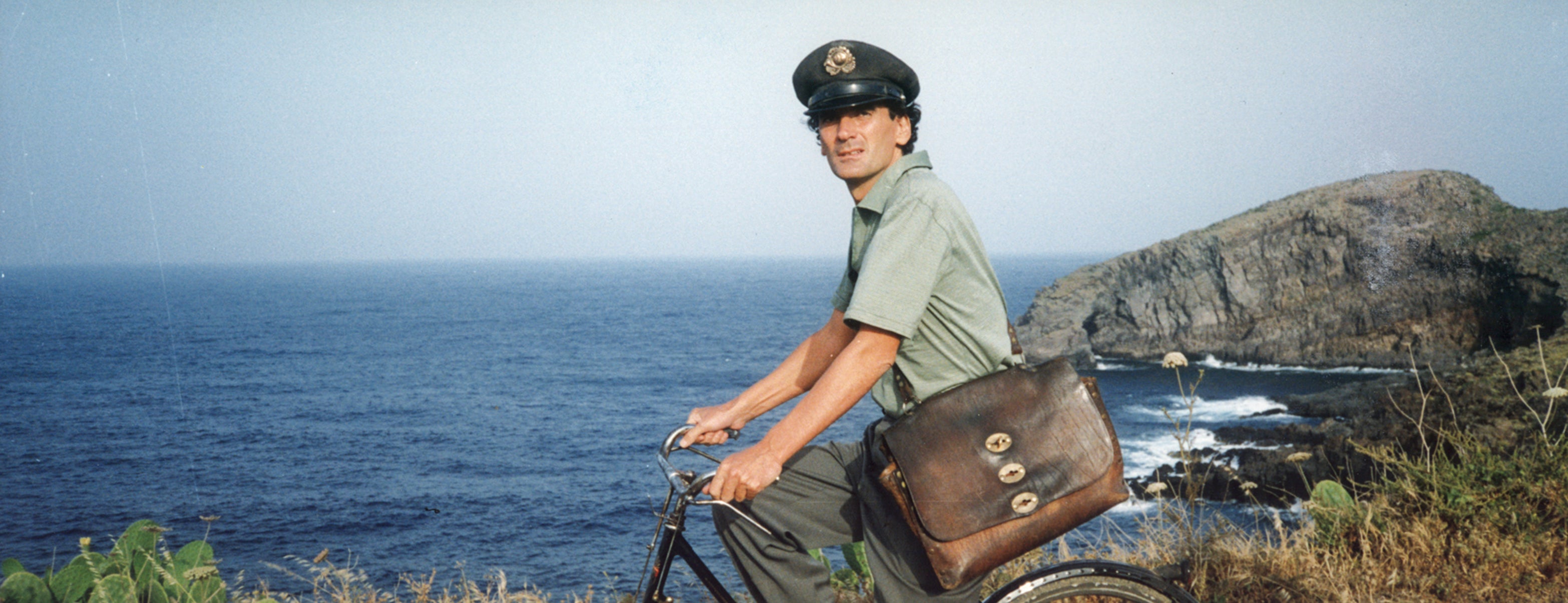
On June 6, 1994, the day of Massimo Troisi’s funeral a man bearing resemblances with the actor is walking behind the coffin, symbolically escorting it outside the church of Sant’Antonio in San Giorgio a Cremano, just outside of Naples.
The crowd of thousands of heartbroken fans and Neapolitan citizens who gathered to farewell the actor and local hero, though, rub the little red cornetti in their hands and close their hands, tucked away inside their pockets, into a fist, only sticking out the index and the little finger. They’re doing le corna, the horns, a scarmantic gesture to wish bad luck away. Many believe that man is the manifestation of Troisi’s ghost.
He goes by the name of Gerardo Ferrara and despite the distinguishing symbolism of Naples, he was Troisi’s stunt double, the professional who closely worked next to the actor on his last film: Il Postino.
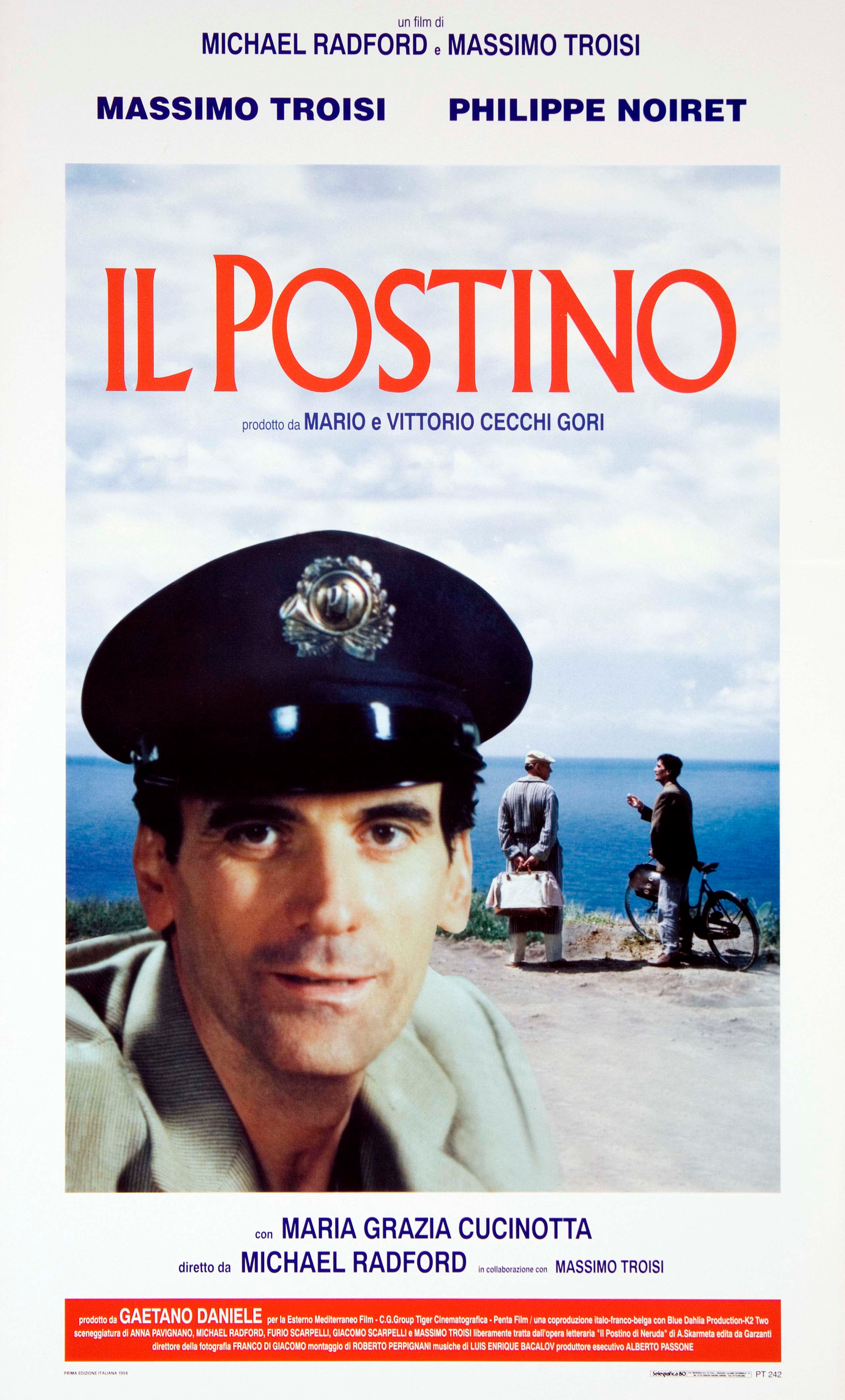
Theatrical poster for Il Postino, 1994.
Set between 1951 and 1952, It tells the story of an uneducated working-class postman Mario (Massimo Troisi) who befriends the great Chilean poet Pablo Neruda (Philippe Noiret), exiled in Southern Italy, and of their inspiring bond based on poetry and friendship. The aid of Neruda shows the power of art to change the life of people, also crucial in helping Mario to woo the local barmaid Beatrice Russo (Maria Grazia Cucinotta).
Directed by Michael Redford, the film had been a game of courting since the very start. A decade earlier, Radford had offered Troisi a role in his film set in WW2 Italy, Another Time, Another Place (1983), but the actor refused not feeling ready for it. But then, having enjoyed the oeuvre, Troisi phoned the director back, admitting his regrets and pitching the project. He had to chase him, bluffing that Giuseppe Tornatore was close to taking the director chair.
The idea sparked in Troisi’s mind after reading the novel Il Postino di Neruda by Chilean author Antonio Skármeta, to which he bought the rights determined to bring an adaptation to the big screen. Filming, at first postponed due to the deteriorating health conditions of Troisi who had been suffering since his birth of cardiac issues, started in the spring of 1994 and carried on for 12 weeks.
The film was released a few months later, in September, quickly becoming an international success and bagging five Oscar nominations, of which only one would materialise into an Academy Award: that for best original music to Luis Enriquez Bacalov.
30 years on, the CAM Sugar soundtrack doesn’t seem to have aged a day, retaining its emotional wholesomeness. A work of love about love, hence rich in layers and nuances, so touching it may make you want to burst into tears. As if all your inner troubles could just unfold into a greater sense of peace and harmony, of love.
The wind instruments, like the clarinet, designated by Bacalov to play the main theme and its variations seem able to embody, in their essentiality and moving strength, the Mediterranean landscape of the island of Procida, where many of the scenes were set.
It had been chosen for the film because, according to Troisi, it was able to convey “the right emotions through its locations and people”. And so did the music of Bacalov.
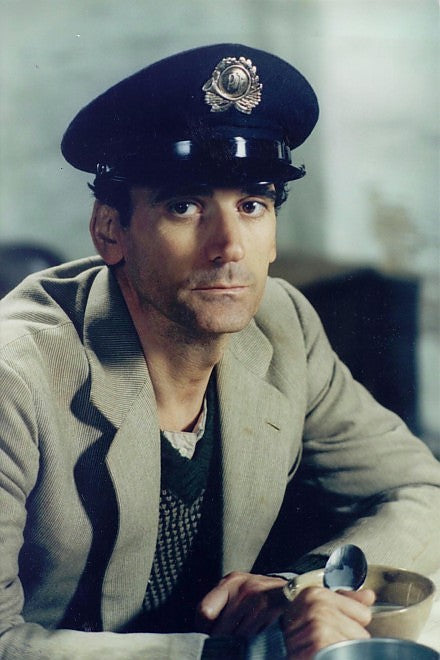
Massimo Troisi plays postman Mario Ruoppolo in Il Postino, 1994.
The compositions by Bacalov set to music some of the most touching and memorable scenes and dialogues, one of which is a manifesto of love.
“I fell in love…”
“Good, it’s not very serious…There’s a cure”
“I don’t want a cure, I want to be sick!”
In that sickness expressed by Troisi lies the concept of lovesickness. Of love as an equally suffering and joyful feeling.
Troisi’s health conditions had deteriorated so much that he could only shoot for one hour a day, with the stunt-double being used for most full-figure scenes. Even dialogue scenes were often shot using close-ups, to conceal the fact the actor had to sit.
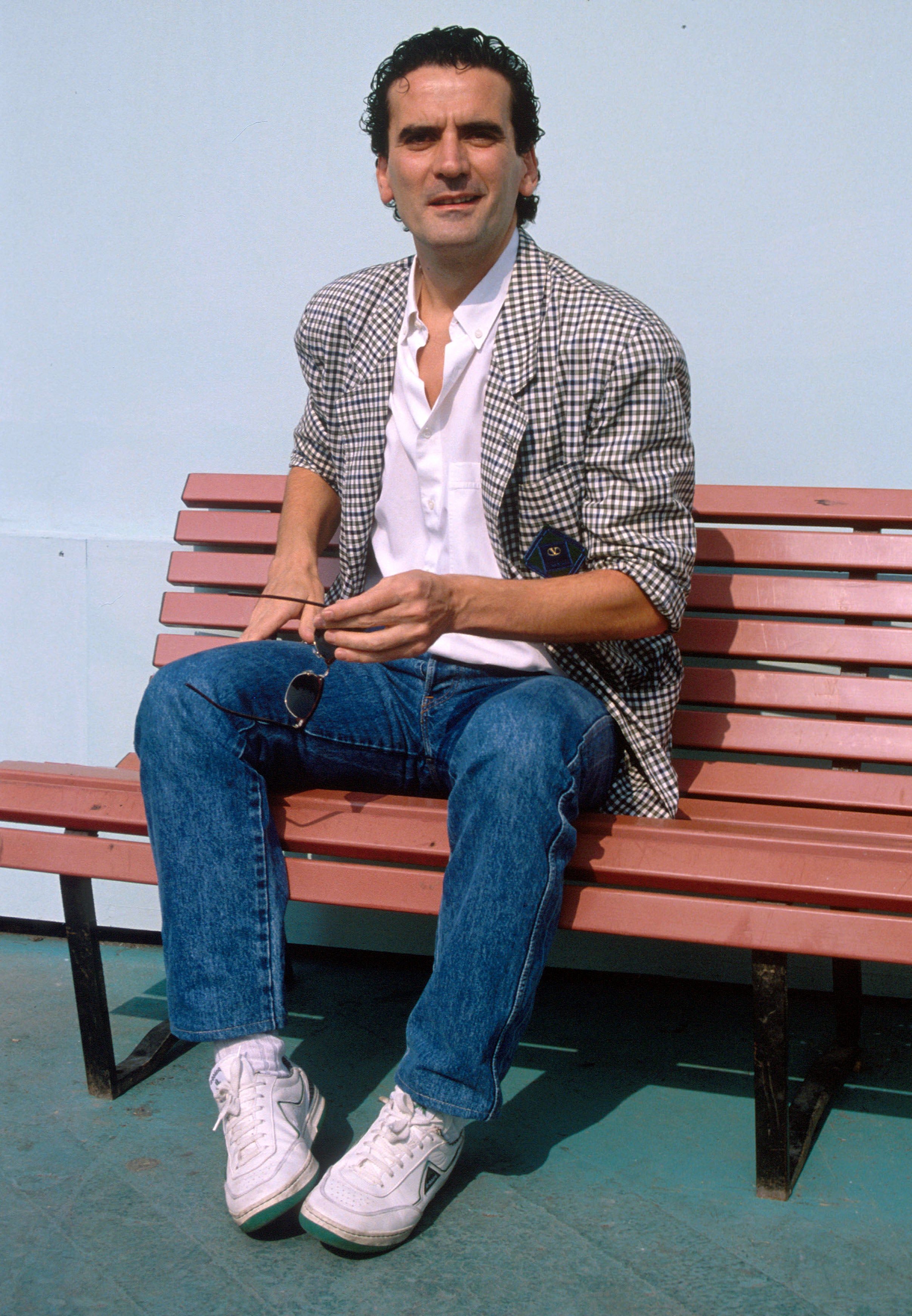
Il Postino was the last film starring Massimo Troisi, before his premature death in June 1994.
Ferrara now treasures the copy of the book that in the film the postman asks Neruda to sign for him. It was actually Troisi who signed it for him on the last day of the shooting. “To Gerardo, for the availability, patience and abnegation with which he made less tiring and more enjoyable my work on the film Il Postino”.
Abnegation, though, was the feeling that moved Troisi until the very end. And a love for the project, in which he had truly believed in. “I want to shoot this film with my heart”, said Troisi amidst fears for his abandonment of the set. Director Michael Redford recalled in an interview with The Guardian how he had pragmatically made Troisi record all his dialogues in advance, to avoid the risk of leaving the film undone in case he couldn’t have made it.
The actor would resist, until the very last day. He then decided to retreat at his sister’s in Ostia Lido, outside Rome, where he would pass away only one day after the last scene of Il Postino due to a heart attack caused by his rheumatic fever.
The sweet melancholia that punctuates the music of Bacalov sounds indeed like a prelude to the death of Troisi, both in the film and in real life. A score that acquires even stronger meaningfulness and power when looking back at the making of the film.
Il Postino, hence, stands as a love letter, not only to the burning passion of romanticism and feelings, but to the arts – from poetry to cinema – and, most of all, to everything one is passionate about and cares fighting for.
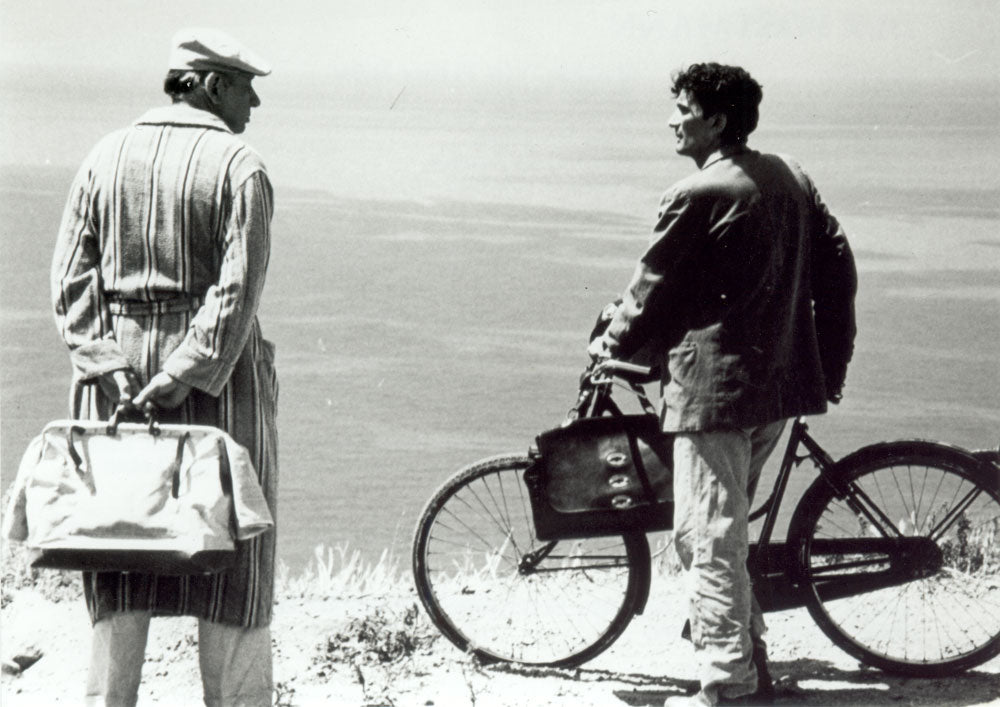
Philippe Noiret as Pablo Neruda and Mario Troisi as his postman Mario Ruoppolo in Il Postino, 1994.
Opening image: Massimo Troisi is Mario Ruoppolo in Il Postino, directed by Michael Redford and with music by Luis Bacalov, 1994.